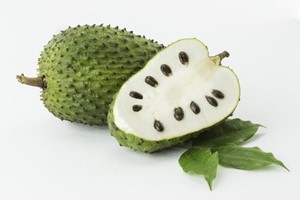Plant-based foods are good for you.
While the constant parade of new fad diets promises to offer health benefits, many nutritionists and doctors continue to encourage patients to adopt a plant-based lifestyle.
“Plant-based diets are so often recommended by dietitians because of the impressive amount of health benefits they offer,” says Siera Holley, a registered dietitian nutritionist with the Ohio State University Wexner Medical Center in Columbus. “Plants are nutrient-dense, which means they contain more beneficial nutrients — like vitamins, minerals, fiber and antioxidants — than calories,” she notes.
All of those components are health-supporting, Holley says. “From health maintenance and prevention to disease management, research continually shows the positive impact diets consisting primarily of plants offer.”
Dr. Andrew Freeman, director of clinical cardiology and director of cardiovascular prevention and wellness with National Jewish Health in Denver agrees, saying quite simply that “plants are our friends. Every professional society, including the American Heart Association, American College of Cardiology, the American Diabetes Association — they all recommend a plant-based diet as one of the best ways to prevent disease. And it’s probably the single best antidote, if you will, to the traditional American lifestyle.”
Here are 12 benefits a plant-based diet can offer:
- Heart health
Plants are low in salt and contain no fat, both of which can contribute to the development of heart disease, says Kathryn Parker, a registered dietitian and licensed dietitian nutritionist with Aviv Clinics in The Villages, Florida. Eating a diet composed primarily of plants, which is high in cholesterol-reducing fiber, can “help reduce plaque buildup in the bloodstream,” which may reduce your risk of developing heart disease or having a heart attack or stroke.
- Blood pressure control
Plant-based diets can lower blood pressure. “Various nutrients, vitamins and minerals, including dietary fiber, potassium, calcium and unsaturated fatty acids present in fruits, vegetables and whole grains, can help lower blood pressure when eaten as part of a balanced diet with limited animal-based foods,” Wong says.
- Lowered stroke risk
It’s often been said that what’s good for the heart is good for the brain, and that’s true with a plant-based diet. A 2021 study from the Harvard T.H. Chan School of Public Health found that “high-quality plant-based diets, that is, diets including leafy greens, whole grains and beans but less refined grains and added sugars may lower overall stroke risk in the long-term by up to 10%,” Wong says.
The study involved 209,508 women and men who were followed for more than 25 years and completed dietary questionnaires every two to four years. None of them had cardiovascular disease or cancer at the beginning of their participation.
- Brain health
In addition to lowering risk of stroke, a plant-based diet can reduce your risk of developing dementia and other age-related brain diseases. Recent research out of Boston University found that adopting the Mediterranean or DASH diet (designed to improve blood pressure) could also improve cognitive health.
Inflammation is also understood to be a key component to the development of certain brain conditions, such as Alzheimer’s disease and dementia. “A plant-based diet is one of the most anti-inflammatory diets ever known,” Freeman says. “How can I cut inflammation, which is the root cause for all diseases? It’s eating right, exercising and getting rid of mental stress. It’s connecting with others and sleeping enough. All these important things — and a plant-based diet is one of the mainstays here.”
- Diabetes prevention and management
A diet that’s high in fiber and low in blood-sugar-spiking high-glycemic index foods has been associated with improved blood sugar control by improving your fasting blood sugar and cholesterol levels, Wong says. This is because “plant-derived foods contain dietary fiber, which helps stabilize blood sugar levels and lowers serum cholesterol and triglycerides, lowering the risk for Type 2 diabetes and cardiovascular diseases, respectively.”
A plant-based diet can help you avoid developing diabetes or improve your experience with the disease if you already have it by helping you control your blood sugars.
- Weight management
Keeping excess weight off is also a key selling point for a plant-based diet. Managing your weight can also help you avoid chronic diseases such as diabetes and cancer. Obesity is a risk factor for both those conditions and many others, so controlling your weight is an important piece of staying healthy for the long term.
- Digestive health
Eating more plants also benefits the microbiome in your gut, because the microbes that live there are fueled by plants — or more specifically the fiber that’s in plant-based foods. “Fiber provides many of the prebiotic foods needed by the gut biome to live and protect the intestinal lining from invasion of pathogens into the body,” Parker explains.
- Kidney health
Typically, patients with chronic kidney disease have been warned to limit intake of fruits and vegetables to avoid hyperkalemia, or elevated potassium levels that can increase risk of heart attack. However, recent research is turning that advice on its head.
A diet that contains “more fruits, vegetables and plant-based protein may offer health benefits to people with chronic kidney disease or who are on dialysis,” Wong says. Choosing more plant-based protein over animal proteins may “slow the progression of kidney disease without affecting the person’s nutritional status.”
- Reduced cancer risk
A plant-based diet may also lower the risk of certain types of cancers, such as pancreatic, colon and possibly others. That’s according to the Adventist Health Study, a 15-year study of 100,000 California-based Seventh-Day Adventists, a religious group that follows a mostly plant-based, whole-foods diet and largely abstains from alcohol, smoking and eating pork.
- Immune system health
Plant-based diets and the variety of vitamins, minerals, antioxidants and other compounds can support immune system health. “For example, you may experience lesser symptoms and recover from a flu infection” faster if you’re following a plant-based diet, Wong says.
Typically, the brighter the colored fruit or vegetable, the more immune-boosting antioxidants it contains. “Look for plant-derived foods such as leafy green vegetables (kale, collard greens), butternut squash, walnuts, mushrooms, beans, persimmons, apples and oranges,” she says.
- Lowered severe COVID-19 risk
Putting the immune system support idea into current context, research has found that people eating plant-based diets likely will fare better if they contract COVID-19. Wong points to a 2020 study that examined 31,815 cases of COVID-19 and found that cases in adults who consumed more plant-based foods had a 41% lower risk of developing severe COVID-19 (i.e., cases requiring hospitalization and respirator support).
“The lead researcher notes that participants were surveyed before vaccines were available and before the development of the Delta variant,” therefore the risks and benefits might have changed since the study was concluded, Wong explains.
Still, it stands to reason that because the phytonutrients found in plants support a healthy immune system, a plant-based diet could offer protection against various infectious diseases such as COVID-19.
- Environmental health
Lastly, a plant-based diet is a healthier alternative for planet Earth, Wong says. “The 2019 EAT-Lancet commission on healthy diets from sustainable food systems states that choosing plant-based foods would help sustain our planet and feed healthy foods to our growing population. Incorporating more wholesome, plant-derived foods — more whole grains, fruits, vegetables, nuts and legumes (beans, peas, lentils) in your meal — allows you to engage in sustainable eating, and this means you are supporting your health and our planet when purchasing and eating food.”
Freeman agrees, saying “you can get everything you need nutrient-wise from a plant-based diet. It’s a very nutrient-dense, environmentally friendly and cost-effective plan. In short, there’s really no shortage of benefits for doing this.”













